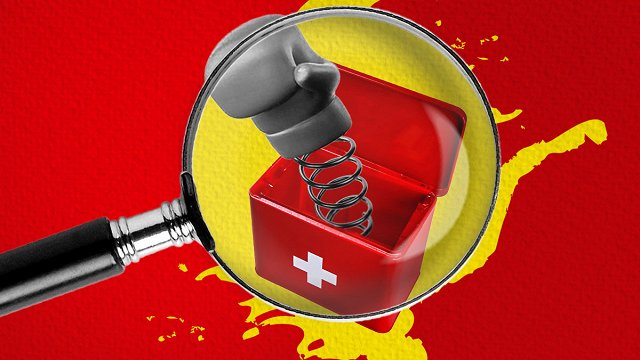Latvia is in first place in Europe according to the amount of alcohol consumed, according to data from the Ministry of Health. Astrīda Stirna, head of the Riga Psychiatry and Narcology Centre, acknowledged that there was a rapid increase in the number of cases where patients are brought to the narcology center by the Emergency Medical Service.
"If we're talking about the average age, it's between 20 and 35, people of working age. If they get into narcology already with psychoses, we can see what their alcohol consumption is. And it cannot be achieved within a day or a week," Stirna said.
Amendments to the Law have been made to reduce the availability of alcoholic beverages, which will be evaluated by the Saeima in the second reading. Amendments aim to reduce the time allowed for the purchase of alcohol by stipulating that drinks could be purchased from 10:00 to 20:00, and until 15:00 on Sundays. The amendments also include upping the age limit to 20 and banning alcohol sales at gas stations.
One of the authors of the proposals is Inga Bērziņa (New Unity).
“Of course, it can always be debated whether direct restrictions are the most efficient way, but, as the World Health Organization points out, they are an effective way, and they called it one of the first things that should be done - to reinforce different kinds of restrictions on alcohol availability, purchase and advertising. And it should be said that there are also studies showing the impact of restrictions on trading time on both consumption, hospitalization, and crime,” said Bērziņa.
Bērziņa acknowledged that industry lobbyists have a strong interest in amending the law, so the adoption of amendments will be difficult, but not impossible.
The Ministry of Health also agreed.
“We don't expect everything to go smoothly. “We look through the prism of public health, there are organizations that look only at economic interests, we have strong support from the World Health Organization,” said Elēna Zviedre, expert on health promotion and addiction prevention.
Dr Stirna believes that there should be no longer any delay in reducing the availability of alcohol.
“There is an urgent need to do something not only to extend the treatment but also to [limit] purchase of alcohol and to stop the delivery of alcohol home,” said Stirna.
The Ministry of Health hopes that by adopting amendments to the law, alcohol consumption will be reduced, as well as the effects of alcohol use – illness, injuries, and mortality.




























